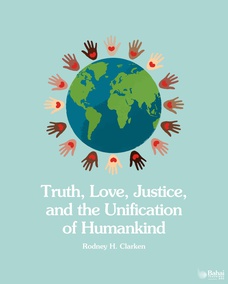The views expressed in our content reflect individual perspectives and do not represent the authoritative views of the Baha'i Faith.
Baha’u’llah taught that an equal standard of human rights must be recognized and adopted. In the estimation of God all men are equal; there is no distinction or preferment for any soul in the dominion of His justice and equity. – Abdu’l-Baha, The Promulgation of Universal Peace, p. 181.
You might not think that the death of a Persian prophet and prisoner of conscience in the late 19th Century has much to do with the recognition of the world’s best-known human rights organization today—but they’re inextricably linked.
On May 28, two closely-related observances take place around the world—Amnesty International Day and the anniversary of the Ascension of Baha’u’llah, the passing of the prophet and founder of the Baha’i Faith. Besides taking place on the same day, these two seemingly disparate observances relate directly to each other, not only because of Baha’u’llah’s lifelong commitment to justice and human rights, but because Amnesty International has now organized the world to help free prisoners of conscience everywhere.

Prison where Baha’u’llah was incarcerated
After 40 years in prison, Baha’u’llah—repeatedly persecuted, exiled, jailed and tortured for his progressive teachings—passed away in 1892. Forced out of Persia by its despotic ruler and successively banished to Baghdad in 1852; then exiled from Baghdad to Constantinople in 1863; then to Adrianople (now Edirne) in 1867; and finally to the prison-city of Acre (Akka) in Palestine (now Israel) later in 1868; Baha’u’llah ultimately spent more than half his life as a prisoner of conscience. The rulers of the Ottoman Empire subjected Baha’u’llah to four decades of cruel and unusual punishment—not for any crime, but for promulgating the peaceful principles of a new religion, the Baha’i Faith, which boldly challenged the orthodoxy and the power structure of the existing corrupt governmental and religious order.
At any time during his four decades of imprisonment, Baha’u’llah could have renounced his new religion and been freed. He never did. The Baha’i teachings specifically say that Baha’u’llah voluntarily underwent this terrible treatment, like every prophet of God has undergone persecution, as a sacrifice for all humanity. His son Abdu’l-Baha said that Baha’u’llah:
…bore all these ordeals and calamities in order that our hearts might become enkindled and radiant, our spirits be glorified, our faults become virtues, our ignorance be transformed into knowledge; in order that we might attain the real fruits of humanity and acquire heavenly graces; in order that, although pilgrims upon earth, we should travel the road of the heavenly Kingdom, and, although needy and poor, we might receive the treasures of eternal life. – The Promulgation of Universal Peace, p. 28.
A hundred and twenty four years later, the same basic dynamic of persecution, imprisonment, torture and execution still stalks the Iranian Baha’is. Dozens of Baha’is, including the Yaran, the seven leaders of the community, are currently being held in Iranian prisons—for the sole crime of being Baha’is. Amnesty International has repeatedly called for their release, and has mounted global media, film and letter-writing campaigns on behalf of the Baha’i prisoners of conscience in Iran.
The Baha’i teachings emphasize the sanctity of the human rights of all people. Baha’is believe in the absolute freedom of every person to worship as they wish. Baha’u’llah suffered so much and for so long in prison and exile, so Baha’is call for fairness and justice for all innocent victims of unjust treatment and prisoners of conscience everywhere.
Amnesty International continues to apply international pressure to the government of Iran’s persecutions of the Baha’is, with its support of efforts to free prisoners of conscience in Iran’s notorious prisons. Amnesty International’s work—to free prisoners of conscience everywhere—has enormous resonance with the Baha’i teachings, which recognize the sacred and inviolable nature of the human conscience and clearly call for its freedom and its protection:
The conscience of man is sacred and to be respected; and that liberty thereof produces widening of ideas, amendment of morals, improvement of conduct, disclosure of the secrets of creation, and manifestation of the hidden verities of the contingent world. – Abdu’l-Baha, A Traveller’s Narrative, p. 91.
Baha’u’llah said “The best-beloved of all things in my sight is justice….” Baha’is and their friends will remember that powerful injunction when they gather to commemorate the Ascension of Baha’u’llah; and Baha’is everywhere urge all humanity to stand in solidarity with Amnesty International as they selflessly advocate for those who suffer injustice all around the world.
You May Also Like
Comments








![[God] hath made woman and man to abide with each other in the closest companionship, and to be even as a single soul. They are two helpmates, two intimate friends, who should be concerned about the welfare of each other. If they live thus, they will pass through this world with perfect contentment, bliss, and peace of heart, and become the object of divine grace and favour in the Kingdom of heaven. But if they do other than this, they will live out their lives in great bitterness, longing at every moment for death, and will be shamefaced in the heavenly realm. Strive, then, to abide, heart and soul, with each other as two doves in the nest, for this is to be blessed in both worlds. – #AbdulBaha #Love #Marriage #Companionship #BahaiFaith
(Selections from the Writings of ‘Abdu’l-Bahá, paragraphs 92.1–92.3)](https://media.bahaiteachings.org/sb-instagram-feed-images/487782836_18497319871023335_4819806972653811469_n__v284x284__.jpeg)








Bahá'u'lláh, of course, went into the wilderness of Sulamaniyyih, and lived as a dervish for 2 years in realtime before He returned to Baghdad and took up the mantle as a divine Emissary.
It is possible that this time of testing is only symbolic and for our benefit that we might learn from it. But, Bahá'u'lláh Himself, wrote that He formed no plan to return from the mountains—rather He was called to return. It is entirely possible that any of the Manifestations might, during this time, have elected to yield to temptation and decline His mission. Certainly, during this period, the human will submitted to the Divine and the Being that emerged from seclusion was something different in some aspects than the one that went into it.
In any event, if knowing the complete and absolute reality of this were important to our progress as individuals or a species, Bahá'u'lláh would certainly have made it clear. So, I have to believe this is one of those points of history that we are allowed to have our own thoughts about, but not teach one way or the other as doctrine.